Advent of technology, impatience are the challenges of modern leaders
| Date :30-May-2019 |
By Vikas Vaidya:
Even though technology has brought about much change in overall conditions, leaders of organisations have to work hard to manage people in human values and virtues so that all are focused on the organisational goals and mission. Thus, the actual challenge is cultural in nature, stretching the leader’s ability to accommodate all kinds of people in a common frame and fulfill organisational as well as individual aspirations. But then, what are the attributes of a good leader, and what are his challenges? Ten leaders offered ten different approaches revealing how wise people arrive at the same destination in different ways. Each of the ten leaders asserted that the real test of leadership is in a crisis. The common theme is: The person who tides over the crisis, holds the team together, offers a sense of assurance to his people gets known as a good leader.
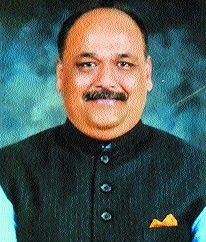
Ajay Sancheti
Former Rajya Sabha Member of Parliament Ajay Sancheti, a business tycoon with diversified business interest, felt, the leader should be loyal to his commitment and should communicate only the truth during a crisis. On that reputation, the leader would find it easy to carry the organisation with him. But times have changed, and younger generation does not have the inclination to understand the process which the leader has to follow in order to meet the challenges of a competitive market. Thus, handling the basically impatient workforce with patience is the most important leadership challenge.

Rajeev Aggarwal
Rajeev Aggarwal, who has had experience of running a big project multinational organisation said, “A good leader should share the credit of successes with the members of the team and make them feel empowered with a feeling that they have performed well. The leader should accept the responsibility of all failures and not get into the blame game with subordinates.
The leader should be able to motivate the team to take on new challenges and also to learn along the way. Secondly, the leader should develop role-clarity for all team members, and ensure that the same is cascaded down the line by the managers. I have followed the development of RACI matrices for all tasks, the term formed as an acronym of the words Responsible, Accountable, Consulted, Informed. Despite this, conflicts still occur and lead to so-called office politics. ... Also, it is the role of the leader to lay plans for the future to be shared with the team players with transparency.
A major challenge today is the volume of data to be processed rapidly to take the right decisions. The advent of emails, smartphones have heightened the expectations of stake-holders. This creates a new kind of stress, and the leader spends considerable effort in managing expectations of all,” said Rajeev Aggarwal.

Anuja Sharma
Anuja Sharma,Director who owns company Shamlax Metachem Private Limited, and also the immediate past Chairperson of the Nagpur Chapter of the Institute of Indian Foundrymen, felt that the leader was he or she who gave space to the subordinates. “If they want to speak, they want to share, they want to suggest, the leader should be open enough for that.
A good leader always wants people to work with him. Secondly, the leader cannot be made; he or she is born. He or she should stay focused on the goal, no matter what others think. He or she must be aware of strengths and weaknesses of colleagues and be a good organiser able to execute work. There is no modern times or ancient times kind of thing. Technology is advancing. So we have to cope with it. Secondly, the leader does not have to assert everytime that he is leader. He must lead by example so that the subordinates emulate him”.
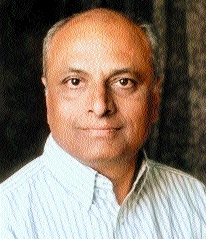
Atul Pande
Atul Pande, President of Vidarbha Industries Association and Chief Executive Officer of the Eros Group, explained the definition of a good leader point-wise: “He must have 1. Vision, roadmap, as so many people look up to him; 2. Effective communication which helps in mobilising the workforce; 3.Transparency which builds confidence, trust, faith among others. The leader should be able to keep the entire team on toes and keep its morale high to extract everybody’s best. A good leader also must know how to delegate powers, bestow responsibility, and monitor work closely. The biggest challenge is to keep pace with change. This reminds me of the book ‘Future Shock’. The society is undergoing an enormous structural change, a revolution from an industrial society to a super-industrial society. Accelerated rate of technological and social change left people disconnected and suffering from shattering stress and disorientation.
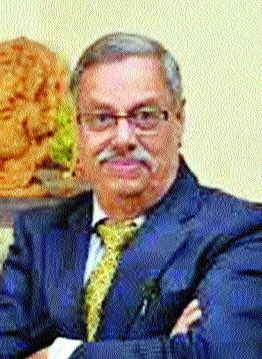
Vishram Jamdar
You should be able to match the pace.” Vishram Jamdar who owns the well known company Kinetic Gears, and also is the Chairman of the Board of Governors of Visvesvaraya National Institute of Technology, talked of clear vision as the most important attribute of a good leader. Under his leadership the VNIT secured high position among top technical institutes in India in National Institute Ranking Frame. “A good leader should have his own team to achieve the target, and an ability to transmit his ideas to the members,” Jamdar asserted.
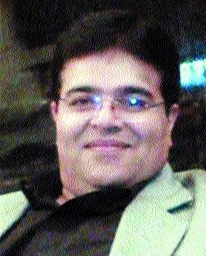
Ajay Kapoor
According to Ajay Kapoor, an industrialist having customers globally, leadership has several attributes. “I have personally made it a point to follow high level of integrity. It creates trust among subordinates.
Secondly, perseverance to achieve a goal is as important as is communication so that the last person understands things with clarity. Sincerity and delegation are other important points. I work for healthcare industry in US. I explain to the clients and employees that we are selling the products that are connected to the lives of the patients. So any work related to it should be done with extreme sense of responsibility.” Ajay Kapoor is worried about younger generation’s ‘instant’ attitude. “It wants fast promotions without acquiring skills. Imbibing the thirst for skill development into them is a difficult task. I have been running this business for the last 20 years.
People used to take you on face value in the past. Now people have become impatient. Plus access to social media and advent of Internet have added to problems. It has opened the challenge for continuity. One of the big challenges is that rapidly changing technology makes it mandatory to cut cost. Technology is an enabler, but it also puts much pressure on industry,” he added.
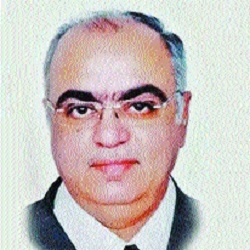
Mahesh Sadhwani
Mahesh Sadhwani, the newly-elected President of CREDAI and head of an educational institution, was of the opinion that leadership qualities were put to test in crisis. “The issue is, how does the leader deal with the crisis -- whether he gets irritated or keeps cool or thinks how to come out of the crisis? A good leader should pat his colleagues when they do well and ignore when they don’t. Keeping an eye on short term benefits does not take you anywhere.
A good leader should be able to make SWOT (Strength, Weakness, Opportunity and Threats) analysis of subordinates. ... We have to cope with the advancing technology, we have to respond to the market scenario, we have to keep an eye on changing trends of employability. Nowadays, employees come for short-term benefits and shift to somewhere else because of some small gain. The leader has to handle such people skillfully. Consumers have become demanding and the leader has to have an eye on them,” elaborated Sadhwani. “Leadership is the component that keeps the whole team intact. The leader leads by example, develops trust through integrity and bestows responsibility.”
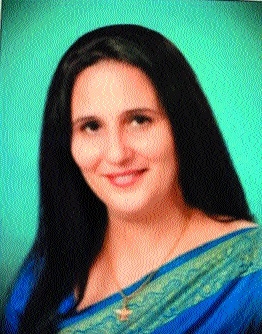
Tauby Bhagwagar
These are the attributes of a good leader, according to Tauby Bhagwagar, owner of the well-known Tauby’s Bakery. She said, social media misinforms people and explaining them the truth is the big challenge. They get obnoxious with you. Grooming the employees to face the modern challenges is important.
“By God’s Grace, I have a very good staff. They came on their bicycles in the beginning. Now with the growth of the company, their standard of living, too, got increased. For me, it is good thing. The leader should feel happy seeing his or her subordinates growing,” Bhagwagar stated. “When I started my industry, it was a small company. I was whole and sole. I learned from experience that ability to multiply self through others is what a leader must possess. Colleagues should be trained to work with the thought-process as that of the leader. He must be able to develop belief in his or her own thought-process.
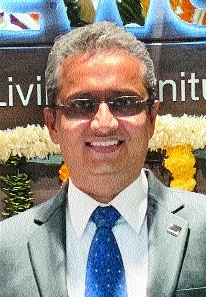
Vivek Deshpande
Otherwise, the leader cannot tell the colleagues what he or she expects from them,” remarked Vivek Deshpande, Partner of the nationally well-known Spacewood Furnishers Pvt Ltd. He felt, the people have the capabilities but are not ready to perform. How to use maximum talent of manpower is the big challenge of modern era, added Deshpande.
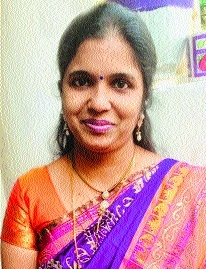
K Sujatha
K Sujatha, General Manager of Wockhardt Hospitals, Nagpur Centre, felt that the leader must possess flexibility. “The promptness in attending a complaint is very important. The leader has to behave on ‘practice what you preach’ manner. Secondly, communication plays an important role, as bad communication always leads to misunderstandings hampering relations.” Rising ambition in people sans focus on skill development, market dynamics, expectations of subordinates, sustaining a good team member are the leadership challenges, adds K Sujatha.
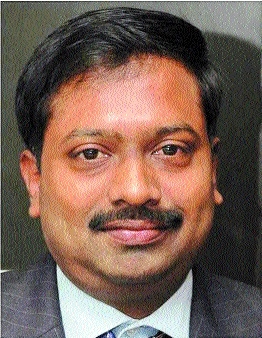
R Ramakrishnan
R Ramakrishnan, Chairman, aXYKno Capital Services Pvt Ltd, said, “Leadership, is single most differentiating and distinguishing attribute to achieve orbit-shifting goals. In fact, there has never been a more challenging time to lead than today in a world which is Volatile, Uncertain, Complex and Ambiguous (VUCA). Some of the top attributes are: Being Enthusiastic and Positive, Empowering People, being Truthful and having Integrity. A leader should be decisive, charismatic and compassionate. Today’s VUCA world coupled with the mind-space of the millennials has made leadership all the more challenging. There also is the issue of leadership deficit. The deficit is not in terms of the domain-knowledge or competency, but it is emanating out of emotional side -- softer skills of dealing with people. It is clearly the inability to understand people to lead people to achieve the larger mission/goals,” pointed out Ramakrishnan.







